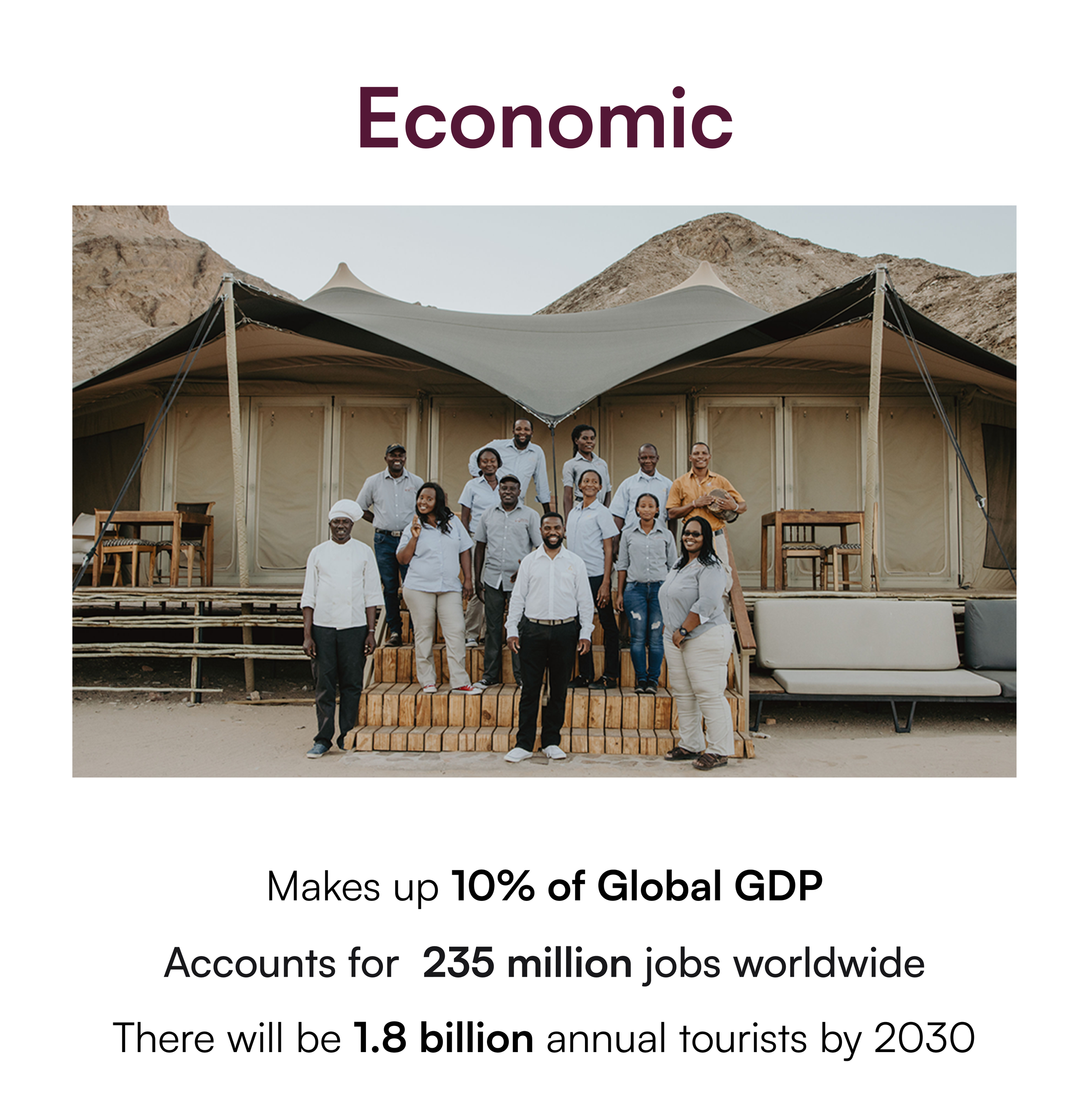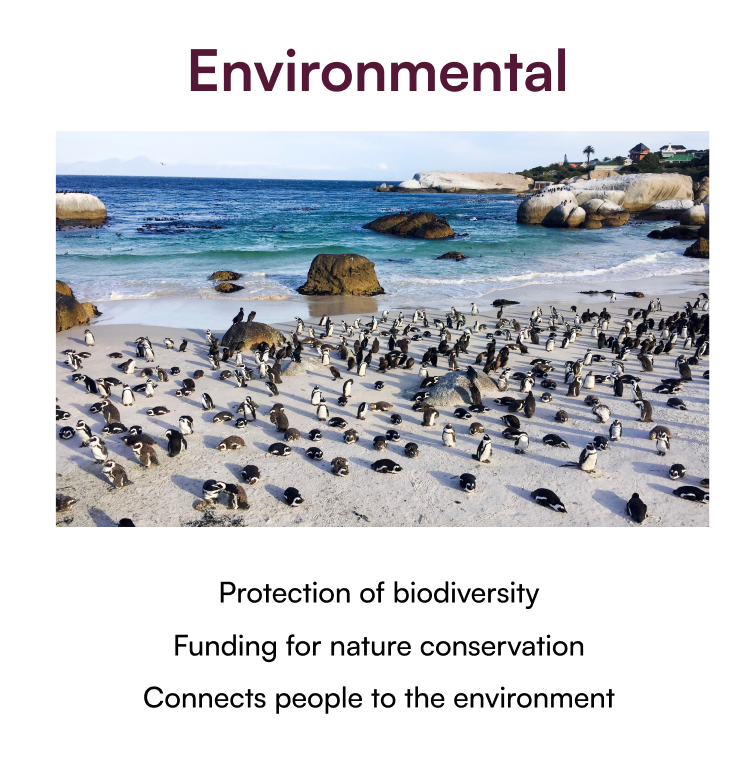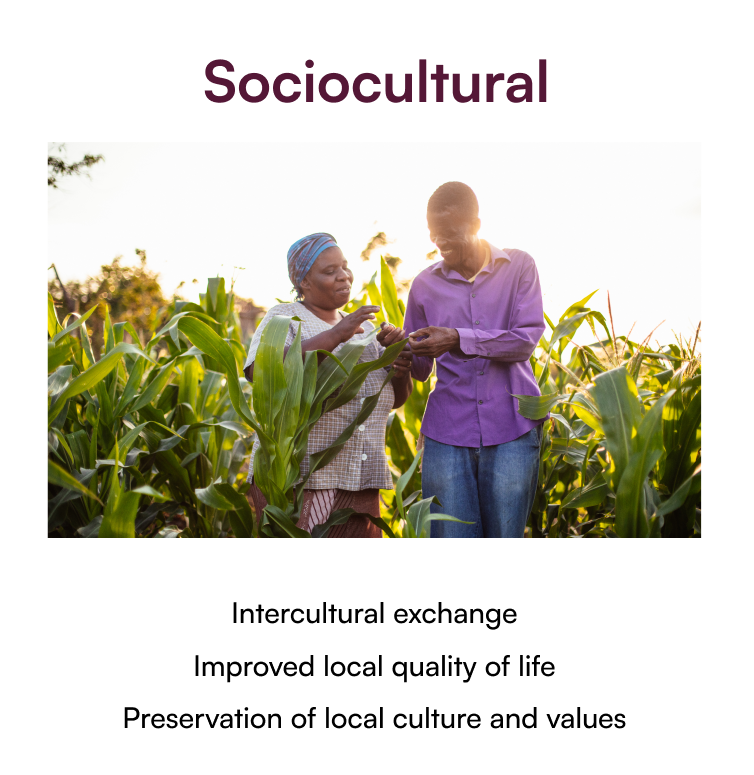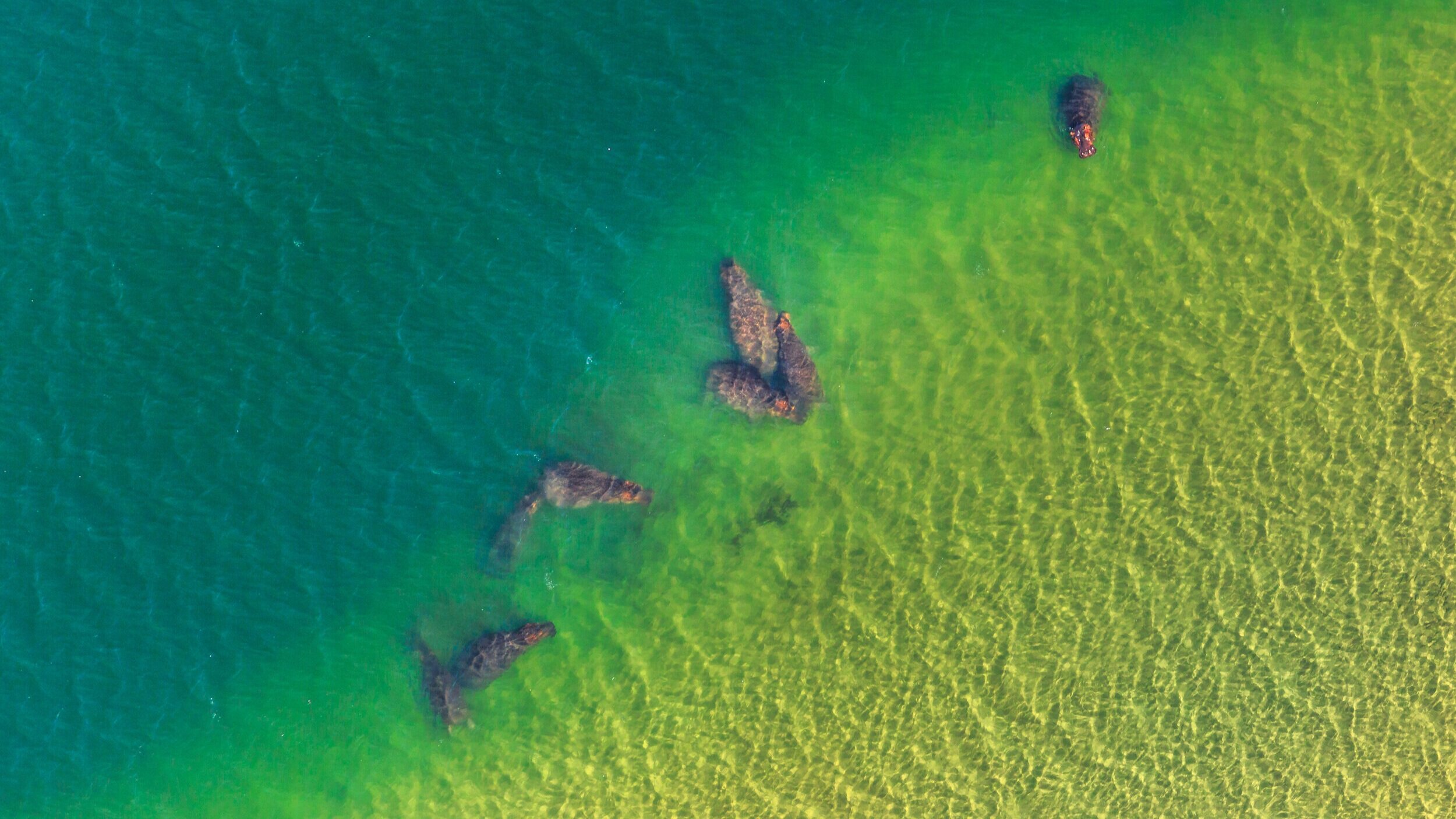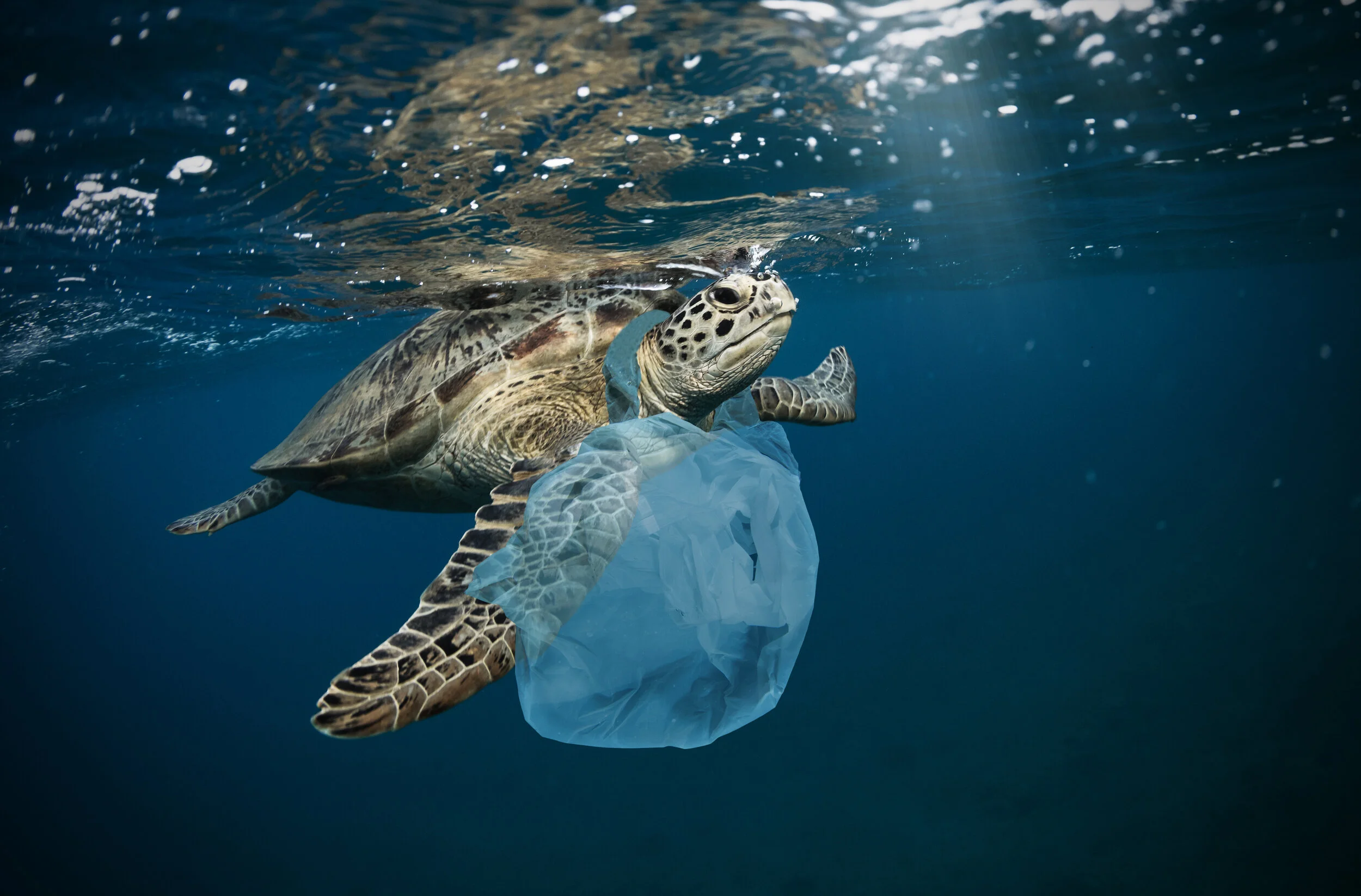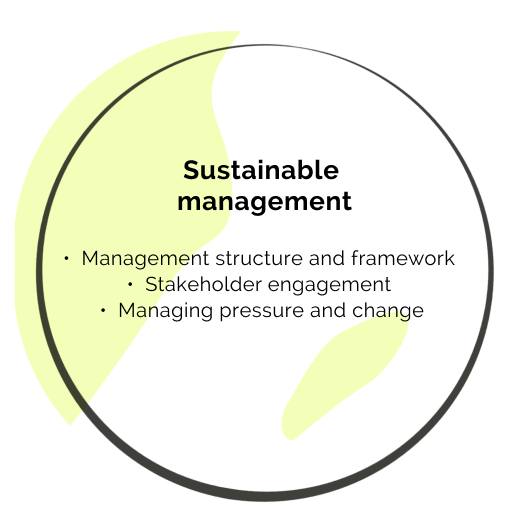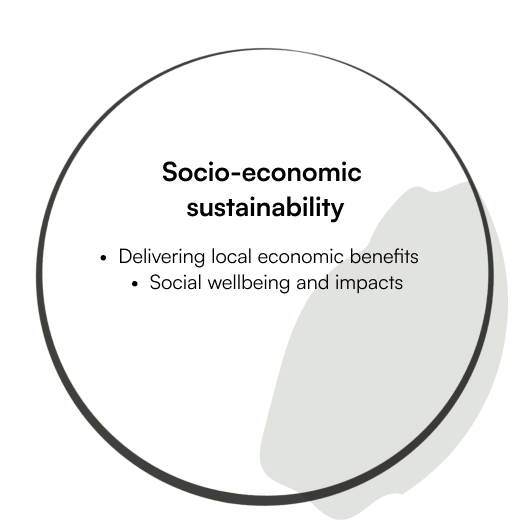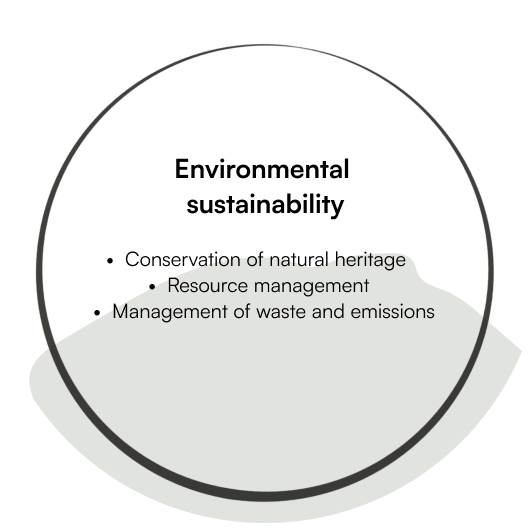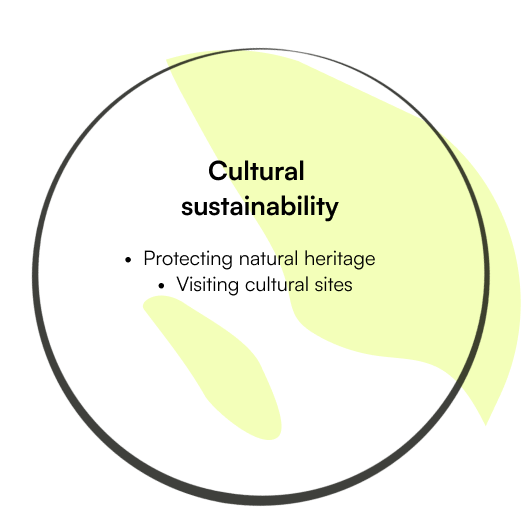Sustainability at Viatu
Written by Jess Tyrrell
Why Tourism Matters
Round-up
Tourism has hardly been held accountable for its harmful contributions to the climate crisis, pollution and social inequality or its role in eroding cultural and environmental landscapes. By actively considering its current and future economic, social and environmental impacts and simultaneously addressing the prevailing and projected needs of travellers, the industry, the environment, and host communities, there is significant potential for tourism to play an essential role in delivering sustainable solutions for people and planet.
As avid travellers and environmentalists, we at Viatu are committed to shaping a sustainable future for travel. We have built our business around this commitment; as such, Viatu has identified the principal actors and aspects in our direct sphere of influence:
The destinations we sell
We choose destinations with sound environmental, social and human rights management systems and avoid destinations where tourism is causing unacceptable social, cultural and ecological harm. We use the Global Sustainable Tourism Council's Destination (GSTC-D) criteria [2] to standardise our approach to developing and managing sustainable destination products.
The service providers we partner with
We ally with local partners —hotels or their equivalents, tourism boards and accreditation bodies — aligned with our sustainability policies. We assess potential partners with a Viatu survey adapted from the Green Globe International Standard for Sustainable Tourism [3] on responsible management, their efforts to conserve biodiversity, local heritage and natural resources, and their positive impacts on society.
The impact of our travellers
Viatu would like to inform and help manage the impact of our travellers. We educate potential travellers on current sustainability topics and best practices via our website, blog and newsletters. We ask all our travellers to sign a Viatu Travel Pledge that details responsible tourism practices, including cultural and environmental considerations and how they can leave lasting positive impacts. To manage our travellers' impact and do our bit to accelerate the transition to net-zero emissions at the global level, we will make climate contributions (offset the emissions from their self-drive stretches and hotel stays) on their behalf through our integration with Squake [4].
Our internal operations
We are a signatory to the UN Global Compact and pledge to enact all ten guiding principles of the UN Global Compact Initiative [6] concerning human rights, labour, the environment and anti-corruption. We are also a signatory to the Future of Tourism's 13 Guiding Principles [7] to reshape, restore and sustain the future tourism industry.
Measuring and reporting impact
Our impact measurement framework aligns with the UN Global Communication on Progress (CoP) approach. We will produce an annual report that details our progress in achieving our goals, necessary amendments, and future aspirations, together with our financial results. To quantitatively measure our impact on governance, workers, the community and the environment, we utilise the B Impact Assessment tool [8].
Our offering to the conscious traveller
An opportunity to experience an immersive and engaging trip that is not harmful to the planet nor people.
In full
A dramatic mark of the globalized world is how easily — and carelessly — we are able to run amok across our fragile planet. Pre-COVID, around 1.4 billion people were travelling a year - that's 18% of the global population. As an industry that accounts for 8% of global greenhouse gas emissions, tourism has hardly been held accountable for its harmful contributions to the climate crisis, nor pollution and social inequality, or its role in eroding cultural and environmental landscapes. Tourism is undoubtedly a crucial industry; it boosts the economy's revenue, accounting for 10% of global GDP and 3% of global employment, facilitates cultural exchange, improves the lives of locals, contributes to emotional wellbeing, earns funding for humanitarian and environmental causes, and much more.
However, the negative consequences of open and unabated tourism are beginning to outweigh the benefits, as is evident in recent climate reports [1] and in the destinations that now suffer from overtourism: when there are just too many people in one area owed to unrestricted travel. Unfortunate victims include Thailand, Bali, Spain, and Italy, where streets are jam-packed, wildlife has been destroyed, beaches are litter-strewn, historical sites are damaged, and locals have been displaced.
The advent of the global shutdown owed to the COVID-19 pandemic offered the world a unique moment to reflect — albeit long overdue — on how business as usual is damagingly unsustainable. Climate change unequivocally affects every continent, region, and ocean on Earth and dictates every aspect of our weather. But what does this mean for tourism? It presents us with a challenge and an unprecedented opportunity: to rectify and improve how we travel so that we can do our part in achieving global sustainability. By actively considering its current and future economic, social and environmental impacts and simultaneously addressing the prevailing and projected needs of travellers, the industry, the environment, and host communities, there is significant potential for tourism to play an essential role in delivering sustainable solutions for people, the planet, peace and prosperity. Sustainable and responsible tourism include and extend beyond the traveller and place responsibility on the hospitality industry and governments to practice non-harmful, beneficial tourism. This is where we step in.
Our strategy
As avid travellers and environmentalists, we at Viatu are committed to shaping a sustainable future for travel. Our business is built around this commitment; as such, we have integrated principles of sustainable tourism into all levels of our operations.
Our offering to the conscious traveller is an opportunity to experience an immersive and engaging trip that is not harmful to the planet nor people. To create a net positive impact in the destinations and communities that our travellers visit, Viatu has identified the principal actors and aspects in our direct sphere of influence:
Destinations
Deciding on a destination is a traveller’s first port of call when planning their trip. This decision has significant consequences as the assumed benefits — or harm — will be reaped in the chosen destination. Tour operators traditionally select destinations based on their tourism potential, which involves natural and cultural attractions, the average price of tourism-related services (including the exchange rates), health and safety, and security. In addition to these conventional criteria, a responsible tourism development strategy also considers sustainability issues, including destinations that do the following:
Respect and promote the heritage and traditions of local communities
Commit to preserving the authenticity of a destination
Increase the number and quality of local jobs
Include residents in deciding the role of tourism in their communities
Measure success not only in economic terms but also by the well-being of the country
Priding ourselves in being responsible tour operators, we choose destinations with sound environmental, social and human rights management systems and avoid destinations where tourism is causing unacceptable social, cultural and ecological harm. To assess the sustainability of a potential destination, Viatu uses indicators and criteria aligned with our policies and the critical sustainability issues relevant to tourism.
We use the Global Sustainable Tourism Council's Destination (GSTC-D) criteria [2] to standardise our approach to developing and managing sustainable destination products. The GSTC destination criteria include performance indicators designed to measure compliance and contribution to associated Sustainable Development Goals (SDGs). The scope of the GSTC-D is broad and can be applied to a wide range of destinations. They may be in any part of the world and of any type (urban, rural, mountain, coastal or mixed) and size (cities, national parks, local communities or regions).
Using these criteria, we assess destinations on the following topics:
Partners
Our second commitment is to ally with local partners —hotels or their equivalents, tourism boards and accreditation bodies — that are aligned with our sustainability policies and meet our requirements. Our requirements relate to responsible management, their efforts to conserve biodiversity, local heritage and natural resources, and their positive impacts on society.
We assess potential partners with a Viatu survey adapted from the Green Globe International Standard for Sustainable Tourism [3]. The survey likewise serves as an educational tool that service providers and establishments can use to make positive changes within their operations. Later, we will implement a sustainability scoring system for each service provider that will be publicised on our website for our travellers.
By establishing and strengthening links and developing partnerships with local authorities, tourism bodies, the private sector, and non-governmental organisations (NGOs), and through our own philanthropic investments, Viatu will help destinations further their long-term vision of sustainability.
Travellers
A critical component of our sustainability quartet is the traveller. Responsible tourist behaviour is crucial to tourism being sustainable. The current ‘overtourism’ paradigm exists because we have been poorly educated on the consequences of irresponsible travel. And even though there have been efforts to increase awareness, travellers are generally unaware of or indifferent to their responsibility to conduct themselves responsibly.
From the moment travellers begin their search for a trip right up until they return home, Viatu would like to inform and help manage their impact. We educate potential travellers on current sustainability topics and best practices via our website, blog and newsletters. Additionally, before our travellers leave for their trip, we ask them to sign a Viatu Travel Pledge that details responsible tourism practices, including cultural and environmental considerations and how they can leave lasting positive impacts [5]. We hope that this pledge will instil a sense of accountability and engagement in our travellers.
A big nasty that comes with tourism — and often the elephant in the room — is the carbon emissions from transport, namely that of flights and cars. This is where the majority of the 8% of total greenhouse gas emissions originate. In developing economies, public transport systems are sometimes dysfunctional or altogether absent, the only options being to navigate the destination by air or by private or tour vehicles.
To manage our travellers' impact in less developed destinations, and do our bit to accelerate the transition to net-zero emissions at the global level, we will make climate contributions (or offset their emissions) on their behalf. Through integration with our climate partner, Squake [4], we receive detailed calculations of the total CO2 emissions of our travellers' self-drive stretches and hotel stays for the entirety of their trip. Based on this calculation, Viatu then purchases carbon credits from the Verra Standard verified Wonderbag climate project in South Africa. The Wonderbag is a revolutionary, non-electric, heat retention cooker that allows food that has been brought to the boil by conventional methods to continue to cook for up to 12 hours, without using an additional energy source. The social, economic and environmental benefits afforded by this project are aligned with the United Nations' Sustainable Development Goals (SDGs).
We aspire to follow value chain emission reduction best practices, meaning that we will consistently reassess where we can reduce both Viatu’s and our customers’ carbon emissions, and make changes where necessary.
Viatu operations
To practice what we preach, Viatu pledges to uphold responsible, transparent and accountable business operations. This includes integrating social and environmental concerns into our operations and with our stakeholders while balancing economic imperatives. As a signatory to the UN Global Compact, we pledge to enact all ten guiding principles of the UN Global Compact Initiative [6]. These ten principles concern human rights, labour, the environment and anti-corruption and are all linked to — and impact progress towards— the UNs Sustainable Development Goals (SDGs).
We are also a signatory to the Future of Tourism's Guiding Principles [7], an initiative created in response to the pause on tourism during the COVID-19 pandemic. Together, signatories pledge to enact 13 guiding principles that will reshape, restore and sustain the future tourism industry.
Measuring and reporting on our impact
Our impact measurement and reporting framework aligns with the UN Global Compact approach. We submit an annual Communication on Progress (CoP) which demonstrates our progress made against the Ten Principles of the UN Global Compact.
To quantitatively measure our impact on governance, workers, the community and the environment, we utilise the B Impact Assessment tool [8].
At Viatu, we promote greener and smarter travel into wilder destinations. Overtourism is our nemesis. Instead, we promote sustainable tourism, so that the positive impacts of travel can be felt for generations to come. COVID-19 has brought a moment of much-needed reflection to the tourism industry, and reflection is exactly where regeneration begins.
So is the term ‘sustainable travel’ an oxymoron? For us, the answer is no.
If you would like to start a conversation, pop us a message on Instagram, or check out our trips!
[1] https://www.ipcc.ch/report/ar6/wg1/
[2] https://www.gstcouncil.org/gstc-criteria/gstc-destination-criteria/
[3] https://greenglobe.com/
[4] https://www.squake.earth/
[5] https://tourism4sdgs.org/wp-content/uploads/2018/07/T4SDGsRecommendations_Travellers.pdf
[6] https://www.unglobalcompact.org/
[7] https://www.futureoftourism.org/
[8] https://bimpactassessment.net/


